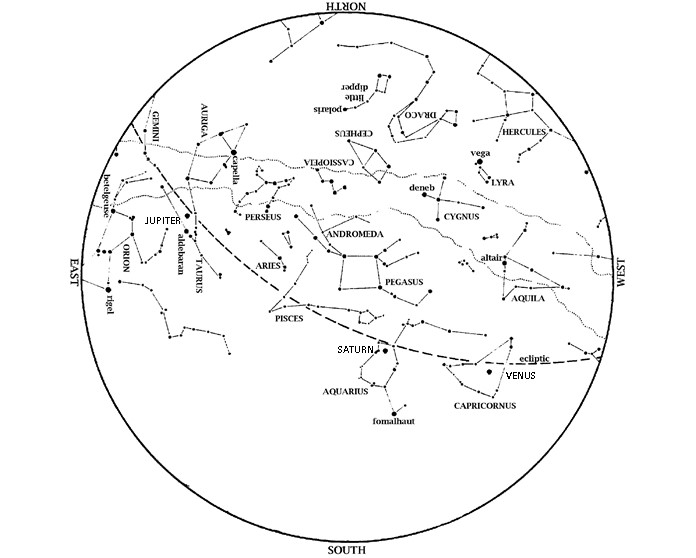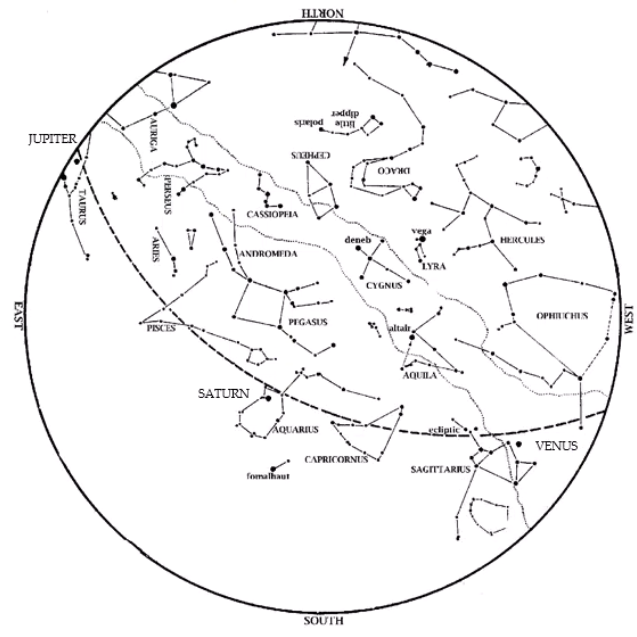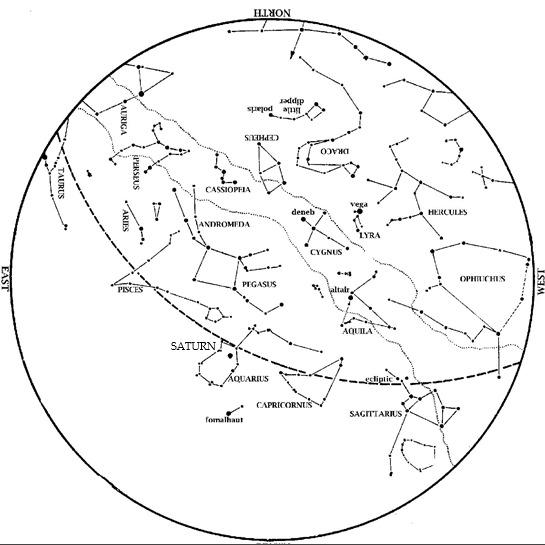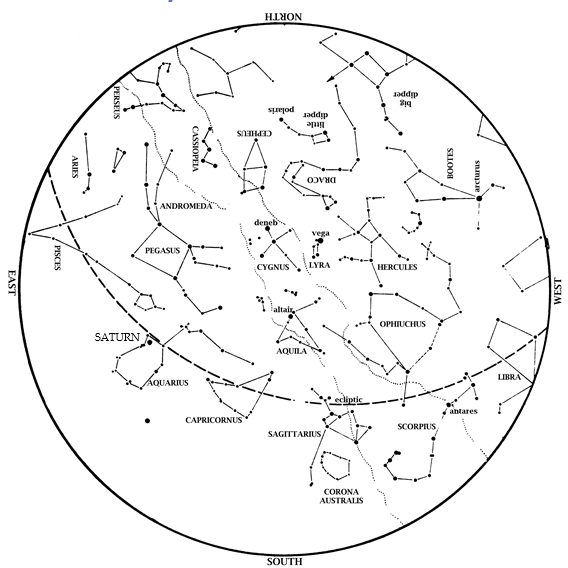Editor’s Note: Summer is on the horizon and HMNS Astronomer James Wooten is explaining the signs in the stars above Houston’s skyline.
Mars and Saturn are low to the east-southeast horizon at dawn. Having overtaken Saturn, Mars pulls away from it each morning in May. During May, Mars and Saturn appear slightly father from the Sun, and thus slightly higher in the morning sky, each morning.
Venus is lost in the Sun’s glare and out of sight this month.
Jupiter is lost in the Sun’s glare and out of sight this month. It is at conjunction (in line with the Sun) on May 18.
A swath of brilliant winter stars sets in the west at dusk. Orion, the Hunter, is still visible in the west as May begins. His two dogs, represented by Sirius and Procyon, are to his left. Gemini, the Twins, are above Orion. The Big Dipper is above the North Star, with its handle pointing to the right. From that handle, you can ‘arc to Arcturus’ and then ‘speed on to Spica’; those stars are high in the east and in the southeast, respectively, at dusk. Leo, the Lion, passes almost overhead at dusk.
As Orion and his dogs set, look for Antares, brightest star of Scorpius, the Scorpion, to rise in the southeast. At the same time, Vega, brightest star of the Summer Triangle, appears low in the northeast. These stars remind us that summer is on the way.
On May evenings, the plane of the Milky Way roughly coincides with the horizon. (At Houston’s latitude, the two planes are off by less than three degrees). We are therefore looking straight out of the Milky Way plane when we look up early on a May evening. Thus May evening skies have fewer bright stars, as we see most of the brightest stars in the Milky Way plane which is ringing the horizon.

The Big Dipper is as high as it gets in the north. Leo, the Lion, is almost overhead at dusk. From the Big Dipper’s handle, arc to Arcturus and then speed on to Spica in the south. As Orion and his dogs set in the west, Vega and Antares peek above the horizon, heralding the approaching summer.
Moon Phases in May 2024
Last Quarter May 1, 6:27 a.m.; May 30, 12:13 pm
New May 7, 10:22 p.m.
1st Quarter May 15, 6:48 a.m.
Full May 23, 8:53 a.m.
Our George Observatory is now open every Saturday night for observing! Purchase tickets in advance on our website.
Clear Skies!
Miss out on last month’s eclipse phenomenon and other sky happenings? Find them here.






